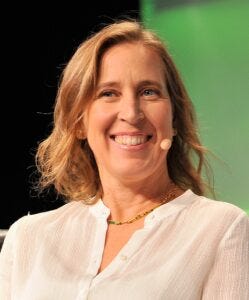Wednesday 14 August, 2024
Gee-up
Striking mural, Brignoles, Provence
Quote of the Day
”I am sure that the power of vested interests is vastly exaggerated compared with the gradual encroachment of ideas. Not, indeed, immediately, but after a certain interval; for in the field of economic and political philosophy . . . the ideas which civil servants and politicians and even agitators apply to current events are not likely to be the newest. But, soon or late, it is ideas, not vested interests, which are dangerous for good or evil.
John Maynard Keynes in The General Theory of Employment, Interest, and Money.
Dead relevant when contemplating the ways in which neoliberal ideas have shaped our world over the last half-century.
Musical alternative to the morning’s radio news
J.S. Bach | Prelude No. 1, BWV 846 (Das Wohltemperierte Klavier) | Alexandre Tharaud
Hypnotically beautiful. It doesn’t get much better than this.
Long Read of the Day
Express Elevator
Truly interesting and subtle essay by the gifted sci-fi writer Karl Schroeder on the flaws in our conventional ways of thinking about — and imagining — possible futures. The title comes from a term devised aeons (probably in the Sixties) for the practice of taking uppers and downers simultaneously. (Spoiler alert: do not try this at home.)
The sad truth is that coherent, single-message futures are easier to understand. That’s why there are more of them. Full stop, end of story. They’re easier to dream up, easier to flesh out if you’re worldbuilding or developing a scenario, and they’re easier to explain. “It all goes to shit!” is a concise enough description of the year 2050 for most people to nod their heads and get right into the action.
But the real world doesn’t work that way.
For example: ending fossil fuels is unquestionably a good idea. But as it turns out, aerosols in the air, mostly produced by burning those fuels, currently mask about .5 degrees C of global warming. There’s a term in geoengineering—”termination shock”—which is the sudden spike in temperature that would go along with ending a geoengineering effort to manage global temperatures. Termination shock is such an evil thing that Neal Stephenson wrote a whole novel about it (guess what the title is). Meanwhile, even as we pontificate about how bad geoengineering is because it has the potential to cause termination shock, we are experiencing actual, for-real termination shock because we’re eliminating coal plants, and the aerosols they’ve blanketed the Earth with for decades.
Coal phase-outs are an express elevator: simultaneously good and bad…
Do read it. It made me think, which is quite an achievement.
Books, etc.
Somewhat to my surprise, I’m finding Nick Wapshott’s book on the clash between two epochal thinkers of the 20th century enjoyable and informative. It helps that it also has the occasional nice anecdote. Like this one about Joan Robinson, the great (but initially under-appreciated) economist who worked closely with Richard Kahn, another of Keynes’s proteges.
She and Austin Robinson were ostensibly happily married with two daughters, but her close intellectual collaboration with Kahn led them to become lovers. The couple was once surprised by Keynes in flagrante, Keynes telling
[his wife]Lydia that the pair were “lovingly entangled on the floor of Kahn’s study, though I expect the conversation was only on ‘The Pure Theory of Monopoly’”.
My commonplace booklet
Susan Wójcicki RIP
speaks onstage during TechCrunch Disrupt SF 2016 at Pier 48 on September 14, 2016 in San Francisco, California.
She originally rented her garage to Larry Page and Sergey Brin when they were starting Google — and then joined the company, eventually becoming CEO of YouTube. “As one of the earliest Googlers — and the first to take maternity leave”, writes Sundar Pichai (CEO of Alphabet and Google), “Susan used her position to build a better workplace for everyone. And in the years that followed, her advocacy around parental leave set a new standard for businesses everywhere. Susan was also deeply passionate about education. She realized early on that YouTube could be a learning platform for the world and championed ‘edutubers’ — especially those who extended the reach of STEM education to underserved communities”.
She always seemed to me to be a force for good in the industry. Unlike some other — more famous — women one could name.
NYT obit is here
Linkblog
Something I noticed, while drinking from the Internet firehose.
The Babylonian Map of the World with Irving Finkel This delightful talk by a great scholar of antiquity is unmissable IMHO.






